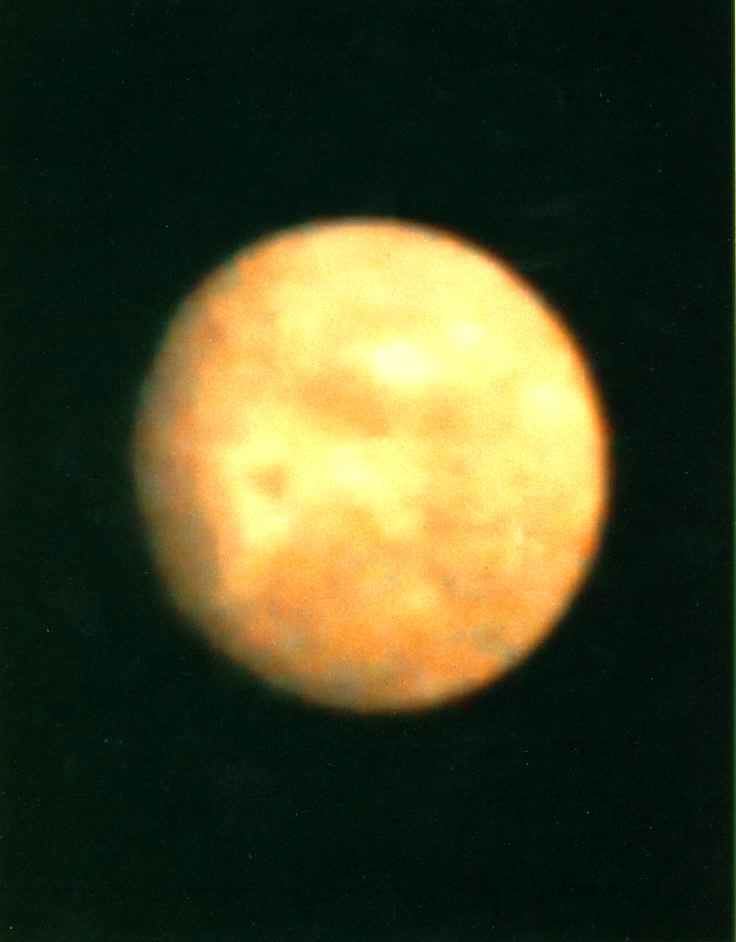 This is the Web Edition of "A Trip Into Space", a Coimbra-based electronic book on space science. Both the texts and the photos are by courtesy of National Aeronautics and Space Administration.
This is the Web Edition of "A Trip Into Space", a Coimbra-based electronic book on space science. Both the texts and the photos are by courtesy of National Aeronautics and Space Administration.
 This is the Web Edition of "A Trip Into Space", a Coimbra-based electronic book on space science. Both the texts and the photos are by courtesy of National Aeronautics and Space Administration. This is the Web Edition of "A Trip Into Space", a Coimbra-based electronic book on space science. Both the texts and the photos are by courtesy of National Aeronautics and Space Administration.
|
A Trip Into Space  Uranus Uranus  Satellites And Rings Satellites And Rings  Uranus' Satellite Oberon Uranus' Satellite Oberon |
|
| See also: Uranian Satellite Fact Sheet |   |
This color picture of Oberon, Uranus' outermost satellite, was taken by Voyager 2 on Jan. 22, 1986. At the time, two days before closest approach, the spacecraft was 2.77 million kilometers (1.72 million miles) from the satellite. This image, which has a resolution of 51 km (32 mi), is a computer reconstruction from three frames, exposed with the Voyager narrow-angle camera's orange, blue and green filters. The grayness or apparent lack of strong color is a distinctive characteristic of the satellites and the rings of Uranus and can serve as one indicator of the possible composition of the satellites' surfaces. Oberon has a diameter of about 1,600 km (1,000 mi) and orbits the planet at a radial dispance of 586,000 km (364,000 mi). Oberon's surface displays areas of lighter and darker material, probably associated in part with impact craters formed during its long exposure to bombardment by cosmic debris. The resolution of this particular image is not sufficient, however, to reveal with confidence the nature of these features. The Voyager project is managed for NASA by the Jet Propulsion Laboratory.

Last Update: 2004-Nov-27